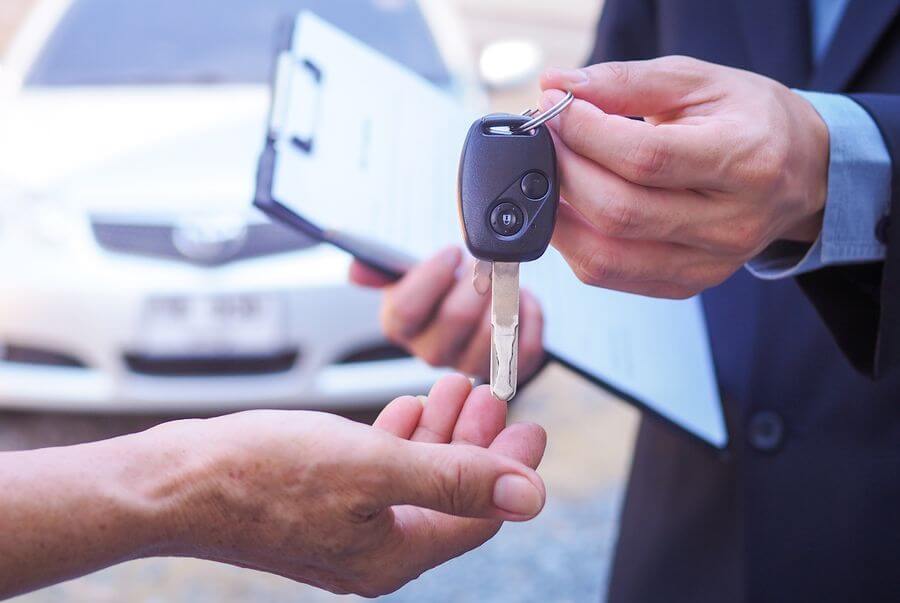The Power of Attorney for Utah is a document oor form granting legal authority to other person, typically an agent, lawyer, or family member.
In essence, it’s giving an agent the legal authority to make business, medical or financial decisions on your behalf.
Typically, the person assigned the power is called the ‘agent’ while the person relinquishing their legal authority on a particular matter is the ‘principal.’ Once you’ve signed the form, it can be used immediately. More importantly, this document doesn’t necessarily require a government agency to be effective. It follows specific rules and regulations that you should be aware of when dealing with this contract.
This article will highlight all the necessary information you’ll need when dealing with it. To set up a power of attorney in Utah, both the principal and agent must fill out and sign a form. Additionally, there are different types of POA Utah that you can find.
Free Forms
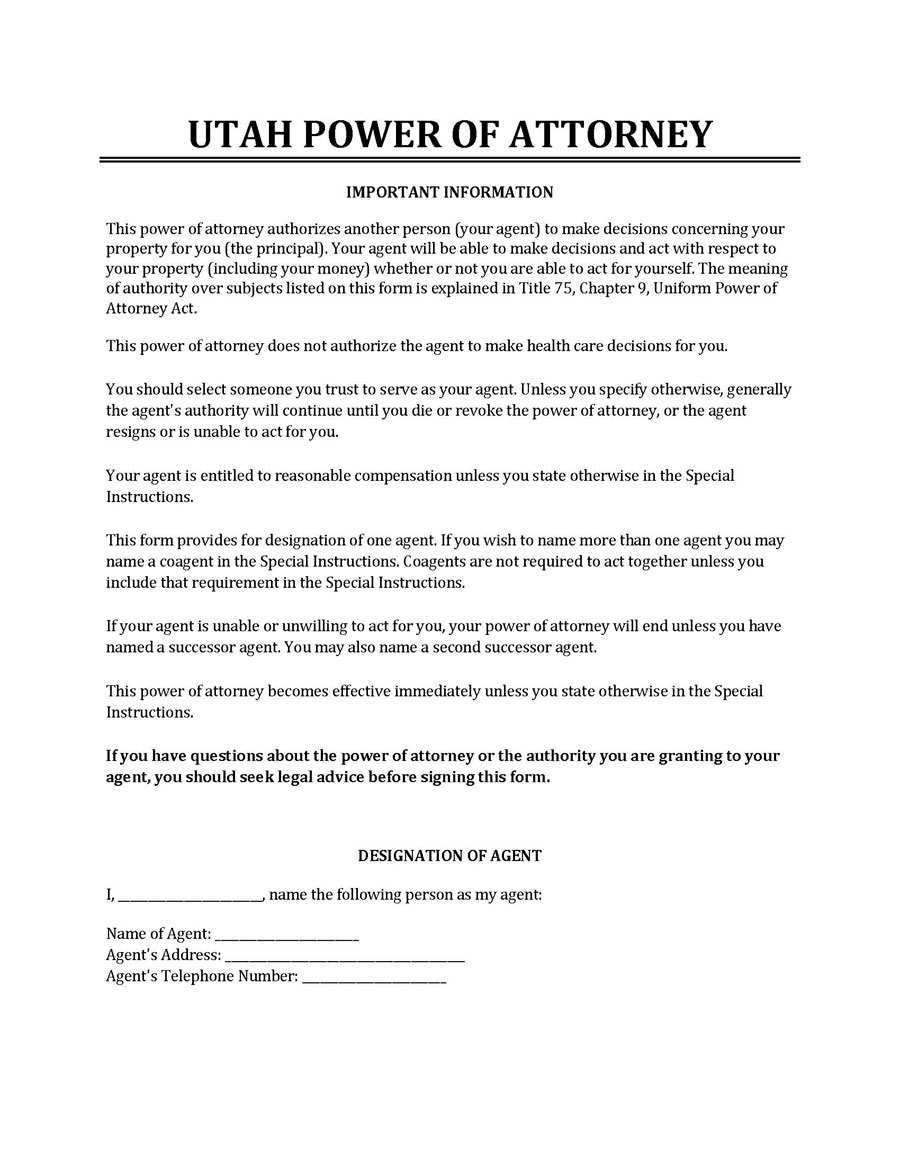
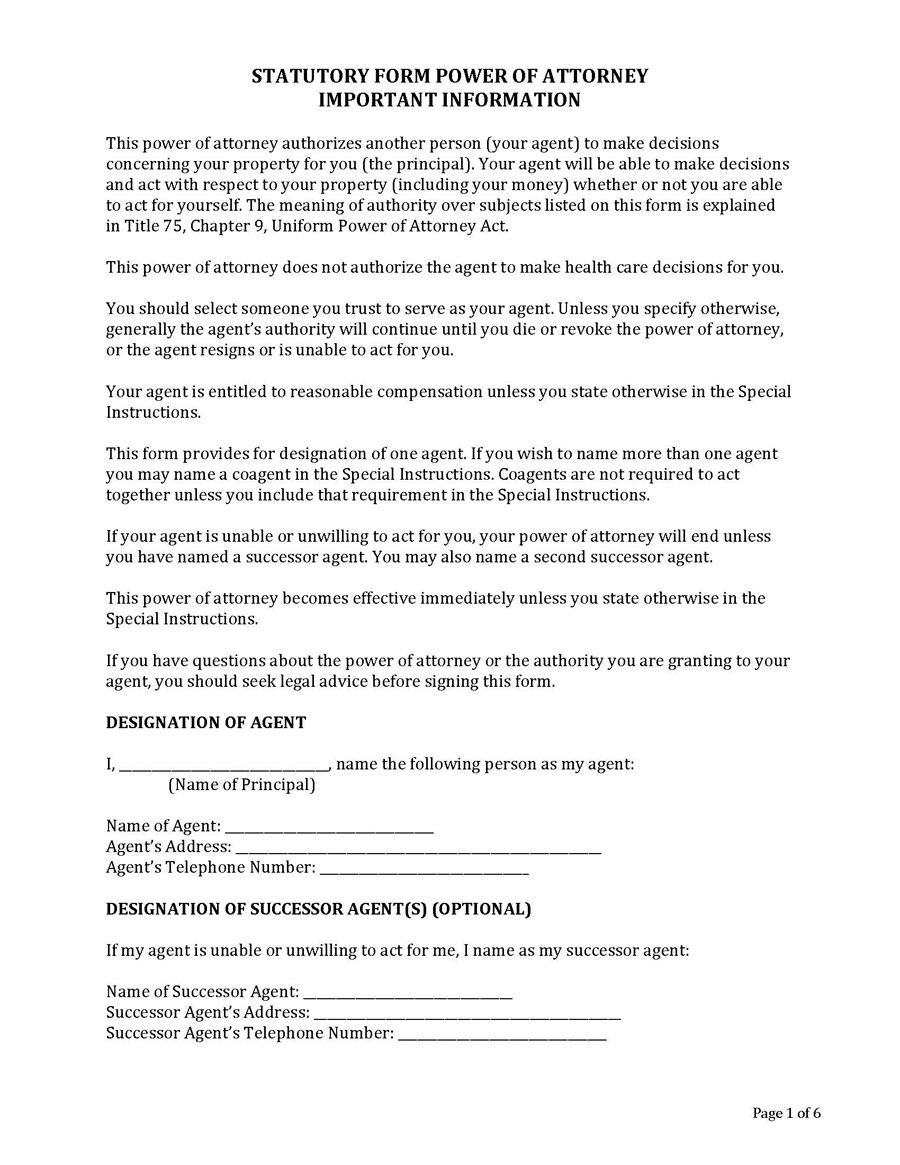
Different Types of Utah POA Form
There are various types of POAs available. Understanding them will help you decide the best fit for you. That said, here are the different types:
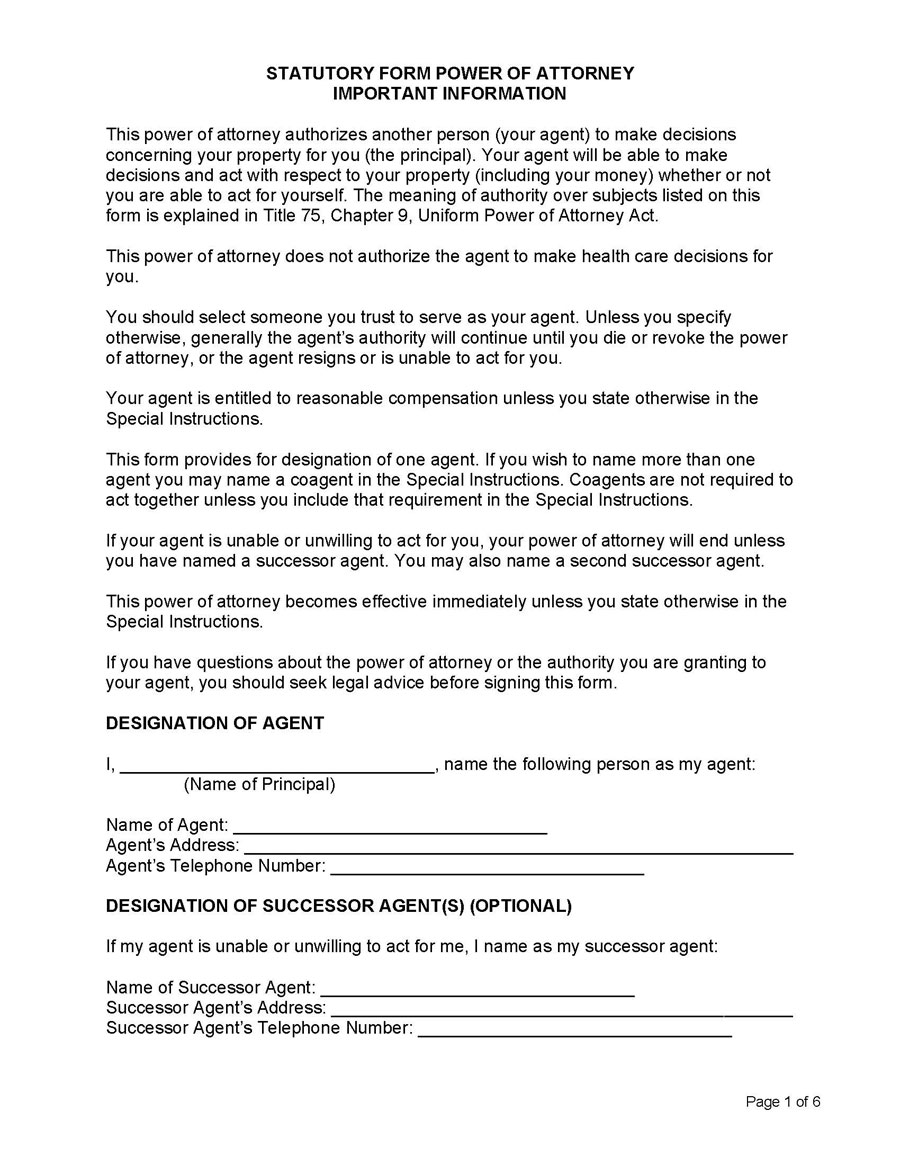
Durable (Statutory) Power of Attorney Form
Download: Microsoft Word (.docx)
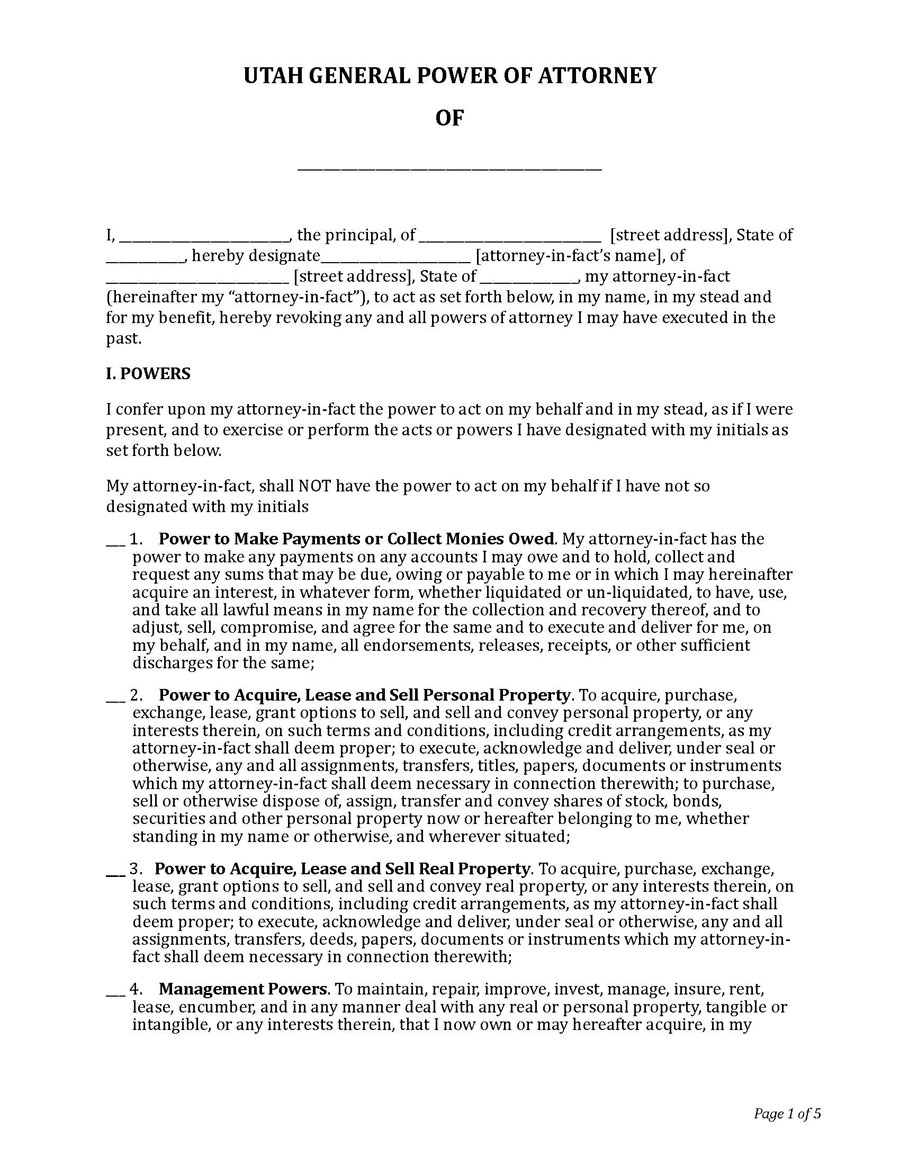
General (Financial) Power of Attorney Form
Download: Microsoft Word (.docx)
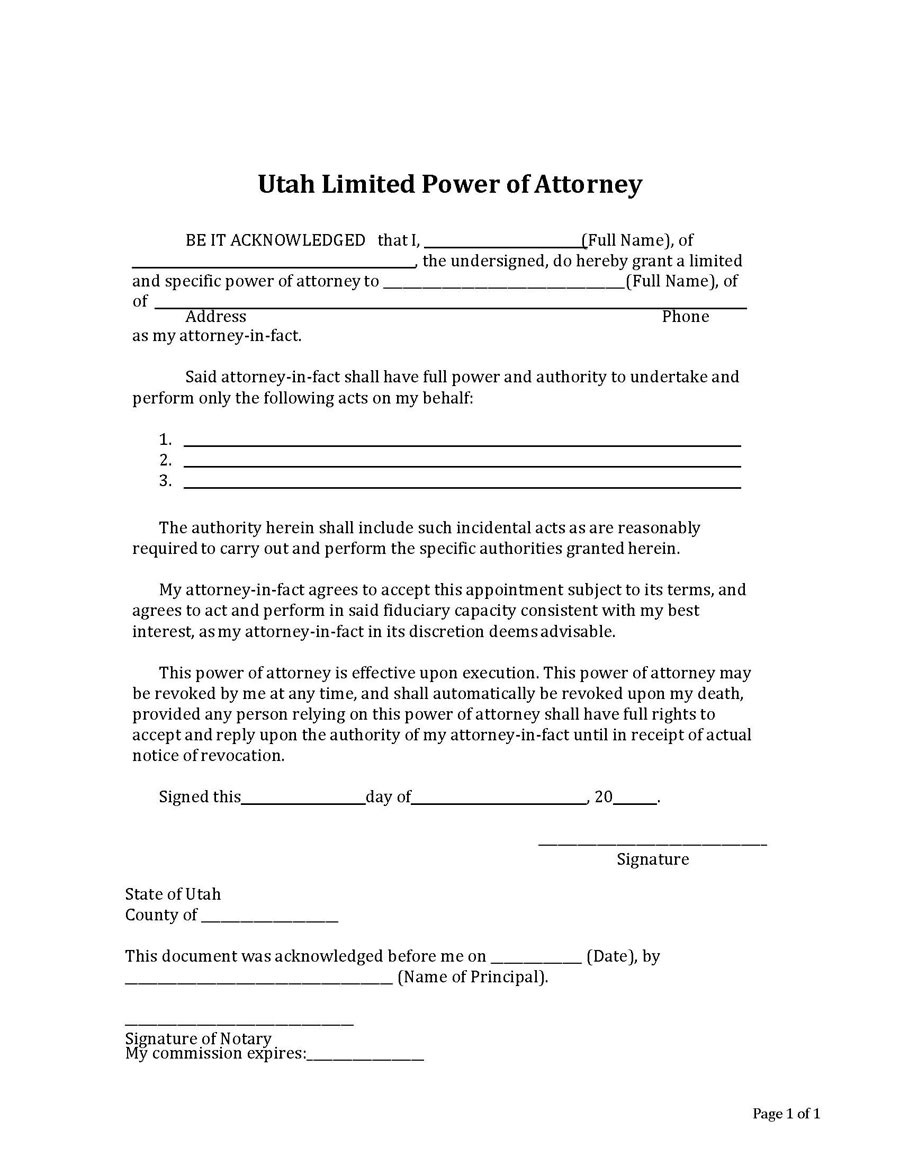
Limited Power of Attorney Form
Download: Microsoft Word (.docx)
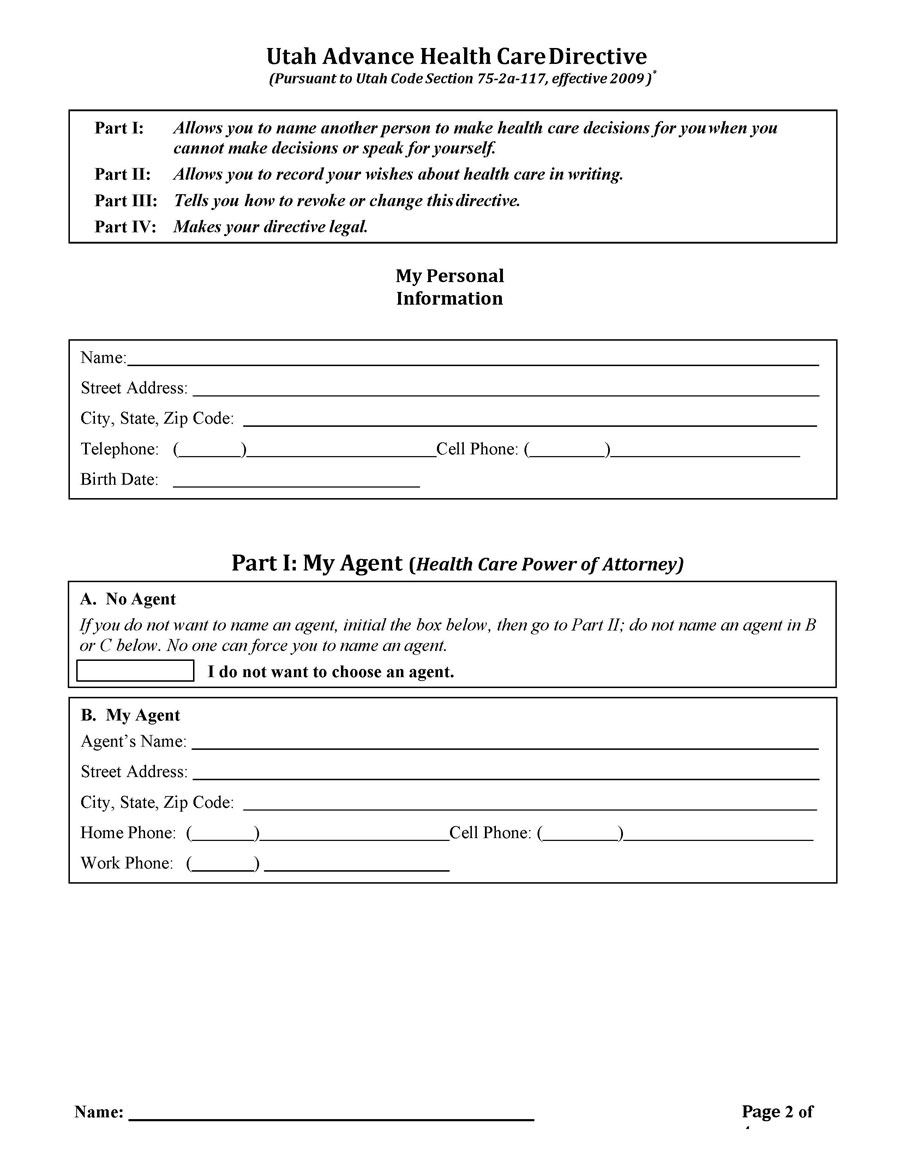
Medical Power of Attorney Form
Download: Microsoft Word (.docx)
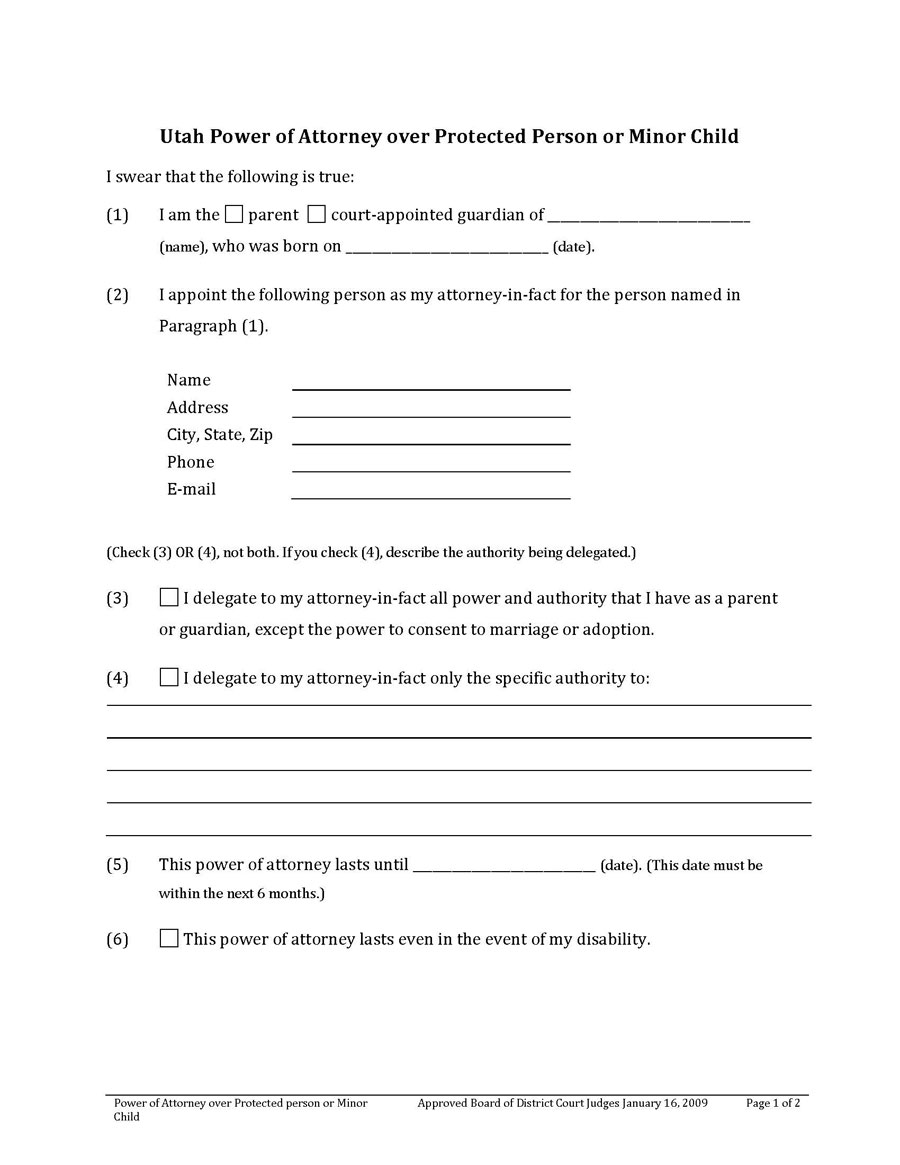
Minor (Child) Power of Attorney Form
Download: Microsoft Word (.docx)
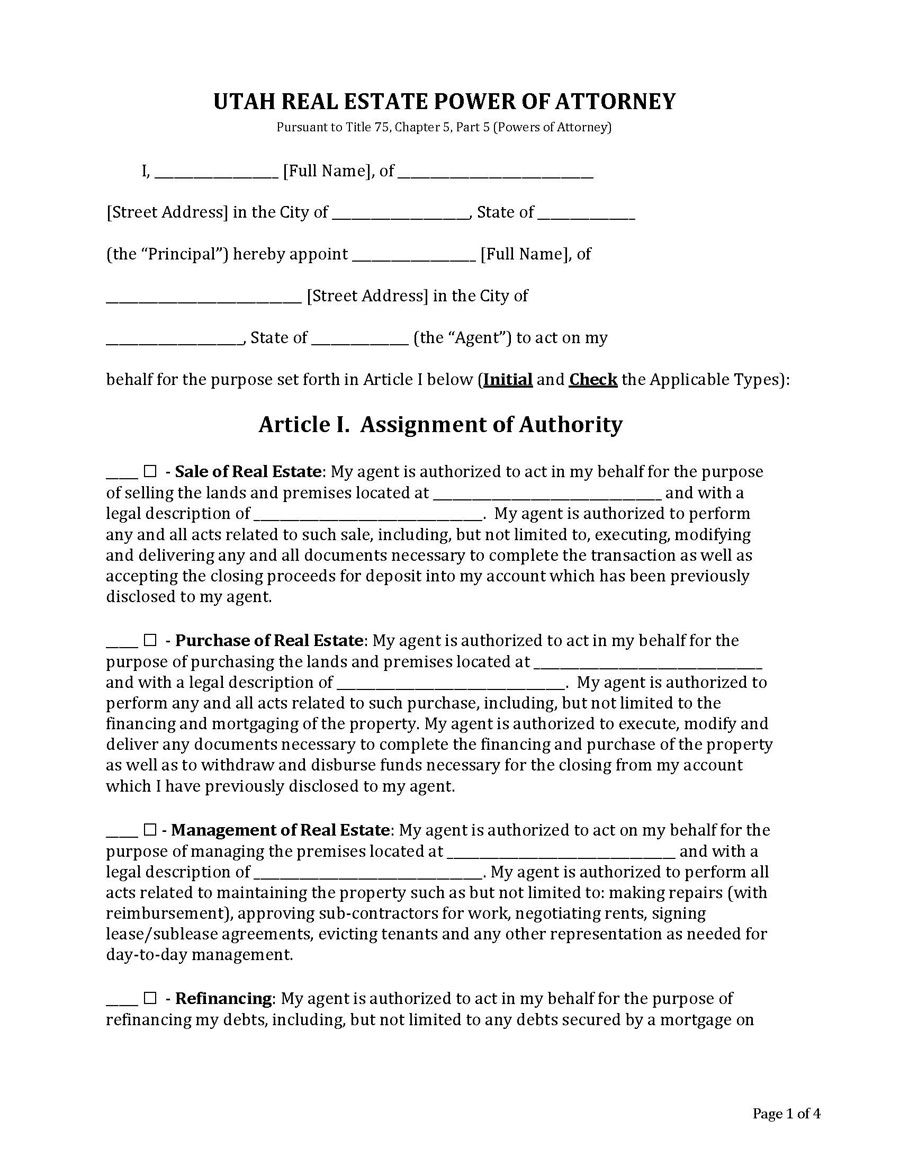
Real Estate Power of Attorney Form
Download: Microsoft Word (.docx)
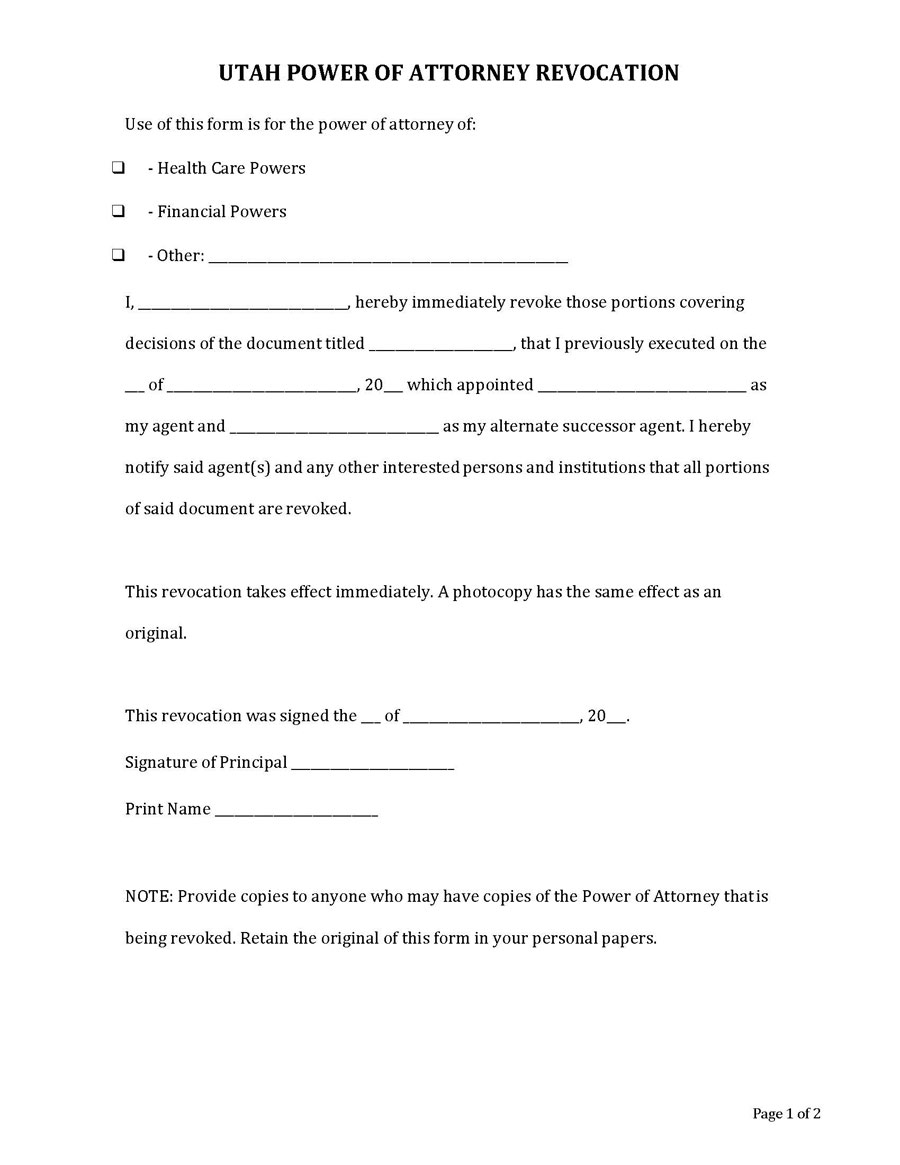
Revocation of Power of Attorney Form
Download: Microsoft Word (.docx)
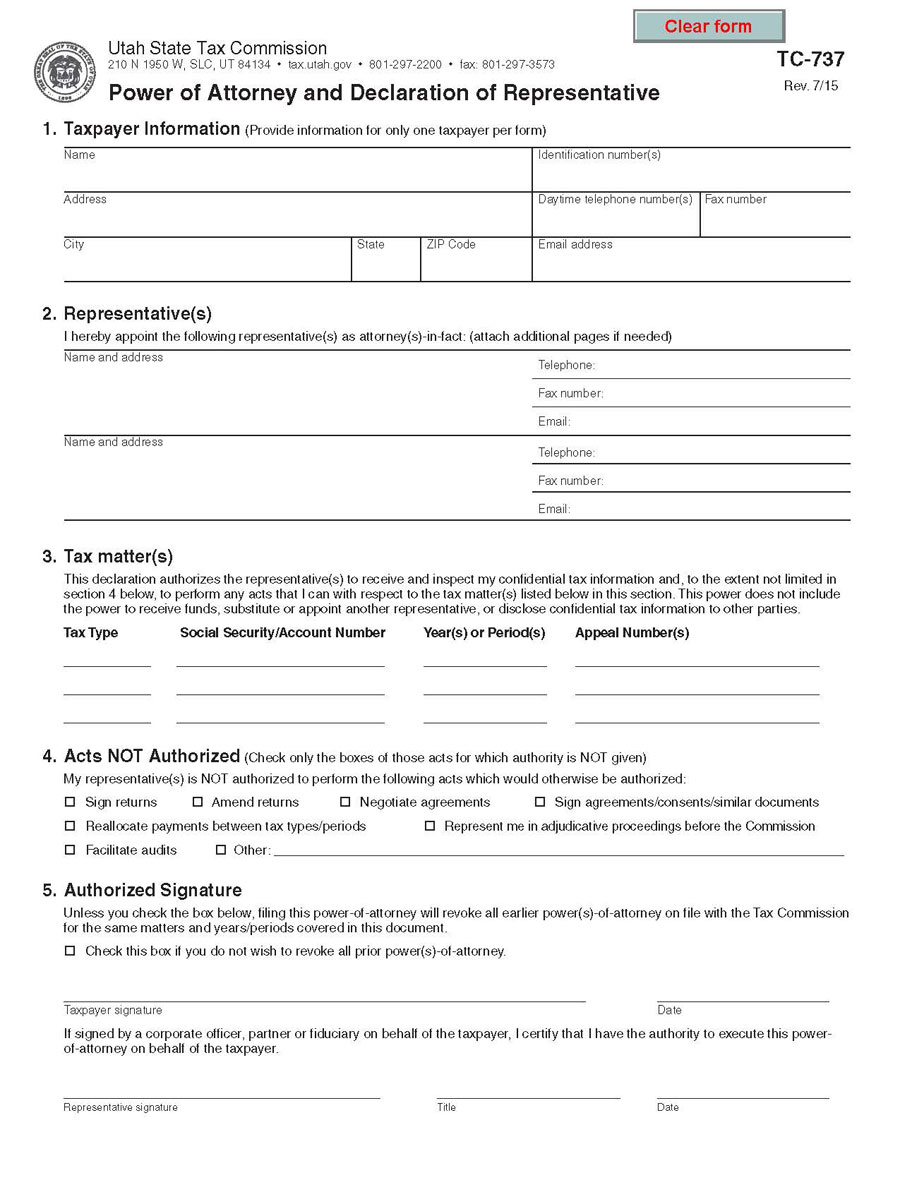
Tax Power of Attorney Form
Download: Microsoft Word (.docx)
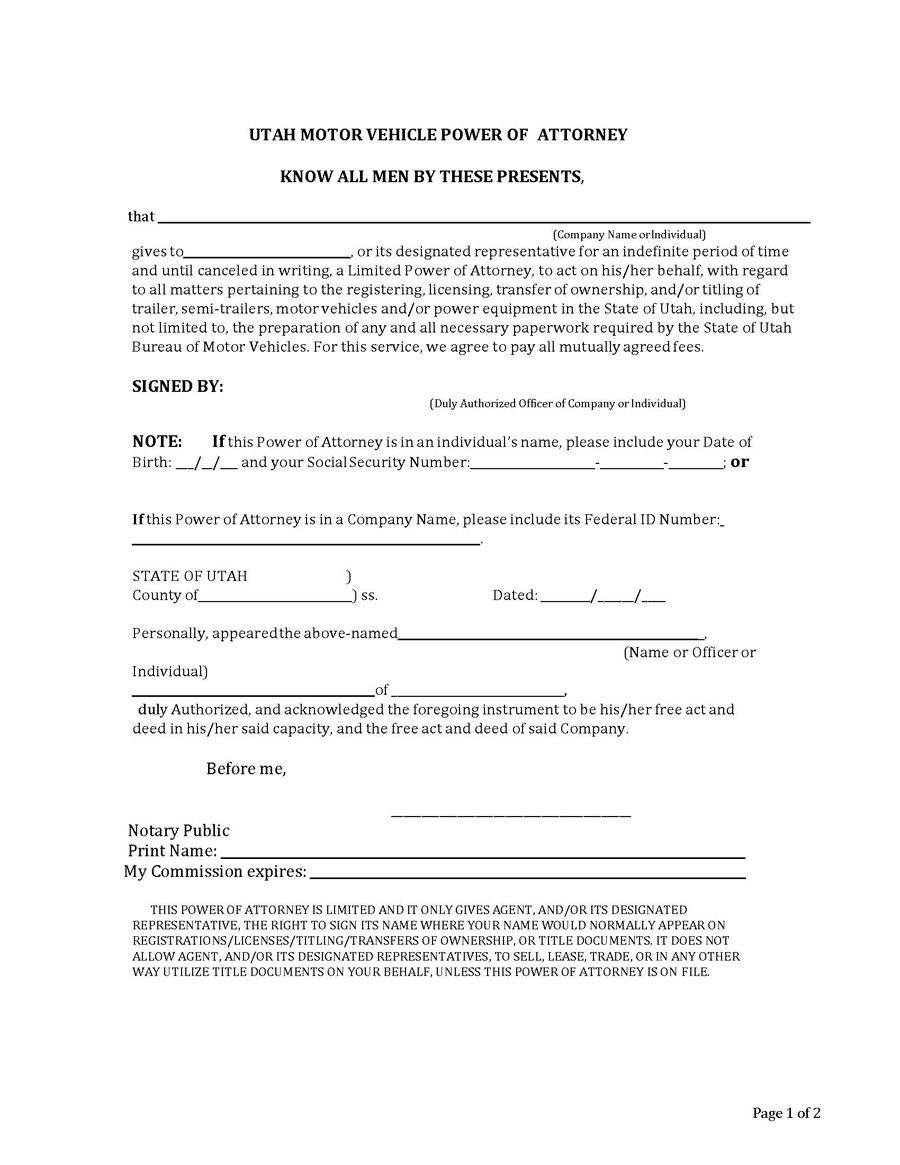
Vehicle Power of Attorney Form
Download: Microsoft Word (.docx)

Advance Health Care Directive POA Form
Download: Microsoft Word (.docx)
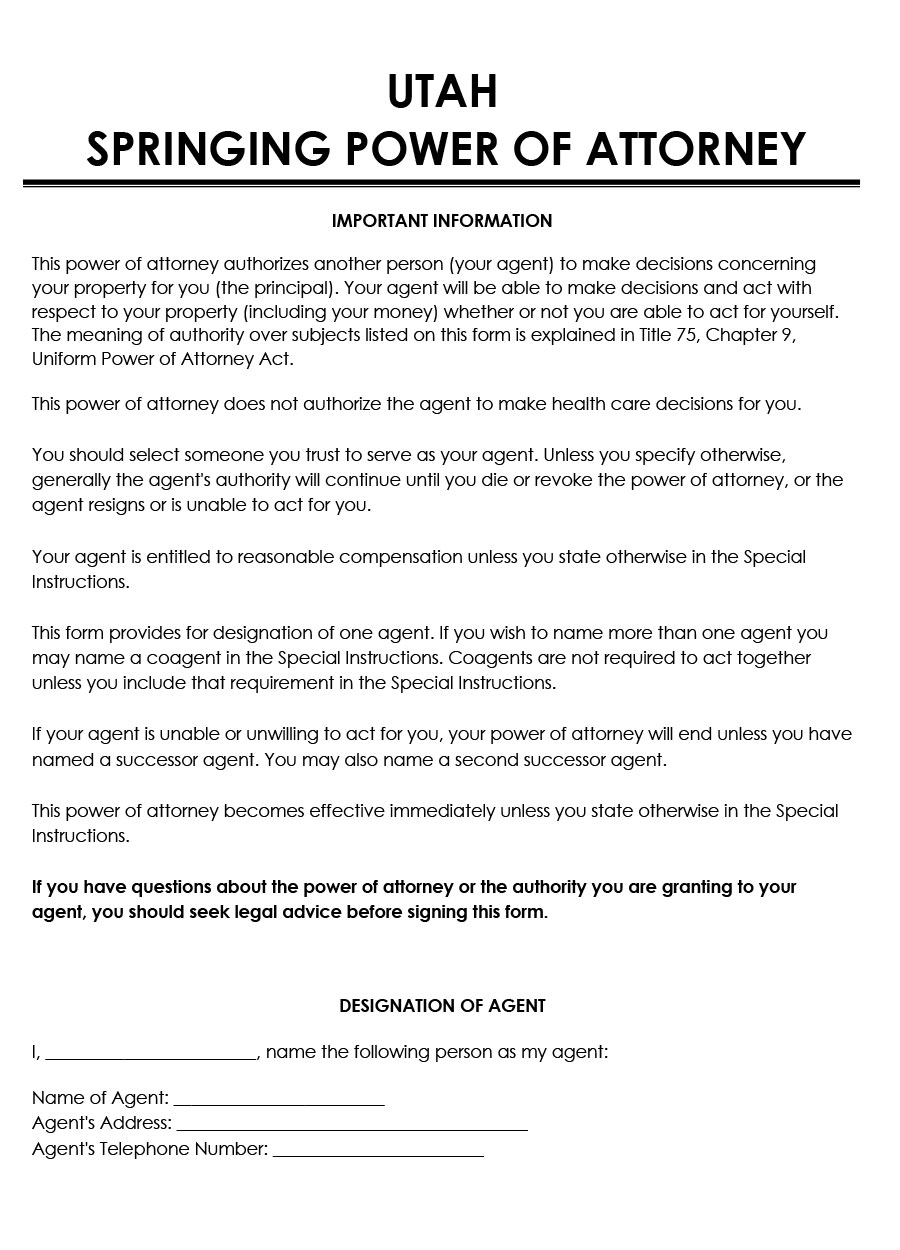
Springing Power of Attorney Form
Download: Microsoft Word (.docx)
Governing Laws (Durable Power of Attorney)
In Utah, an ordinary POA expires immediately the principal is incapacitated, for instance, (if the principal is in a coma or under anesthesia). However, when it is durable, the agent will continue to maintain authority and act on behalf of the principal even if the principal is incapacitated.
Durable POA is often used to prepare for circumstances that will require critical decisions to be made, and the principal is not capable of making such decisions. However, it’s crucial to note that all POA forms, including the durable one, end when the principal passes away. That means the agent will no longer have authority from then henceforth. Therefore, if the principal wants to make plans for their property after death, they’ll have to make a will, testament, or trust.
More importantly, as the principal, you can decide the powers of your agent and what decisions they can make on your behalf. There are different POA forms, and each covers a specific part of the principal’s life. The most common POAs include a medical and financial POA in Utah.
Creating it may feel unnecessary or uncomfortable, mainly if you are in perfect health. However, being prepared ahead of time will ensure all the critical decisions are on someone you trust completely.
Utah Power of Attorney Requirements
For the POA to be legally binding, the UUPAA (Utah Uniform Power of Attorney Act) requires that the powers of attorney must meet the following requirements:
- The contact and name of the principal and agent.
- Crystal clear and specific language elaborately describes what powers are granted to the agent.
- The time the agent will have the capabilities and when it will end.
- The exact date of execution
- The agent’s and principal’s signatures.
Additionally, the principal must acknowledge the document in front of a notary public. You should also understand if you don’t include an end date, the POA will be presumed durable. That means your attorney will still be active even when you are incapacitated.
How to Get Power of Attorney in Utah?
To effectively set up a POA in Utah, you will need both the agent’s and the principal’s signature. Both parties will also have to fill it out. Additionally, it must be created following the UUPAA (Utah Uniform Power of Attorney Act).
But if you want a medical POA in Utah that allows an agent to make crucial healthcare decisions in your place, it must comply with the Utah Uniform Probate Code. In addition, the forms need to meet the Utah state requirements.
Does the power of attorney need to be notarized, witnessed, or recorded in Utah?
Its restrictions and guidelines tend to be different per state. However, the documents must be signed by a notary public in Utah. Therefore, these forms must be signed by a notary and filed within your specific county.
Key Takeaways
- The person assigned the power is called the ‘agent’ while the person relinquishing their legal authority on a particular matter is the ‘principal.’
- The POA in Utah must be created by the UUPAA (Utah Uniform Power of Attorney Act).
- In Utah, an ordinary power of attorney expires immediately the principal is incapacitated.
- Minor (child) POA powers granted to the agent is valid for only six-twelve months.
- You must be the principal identified in this document to issue revocation of power of attorney.










